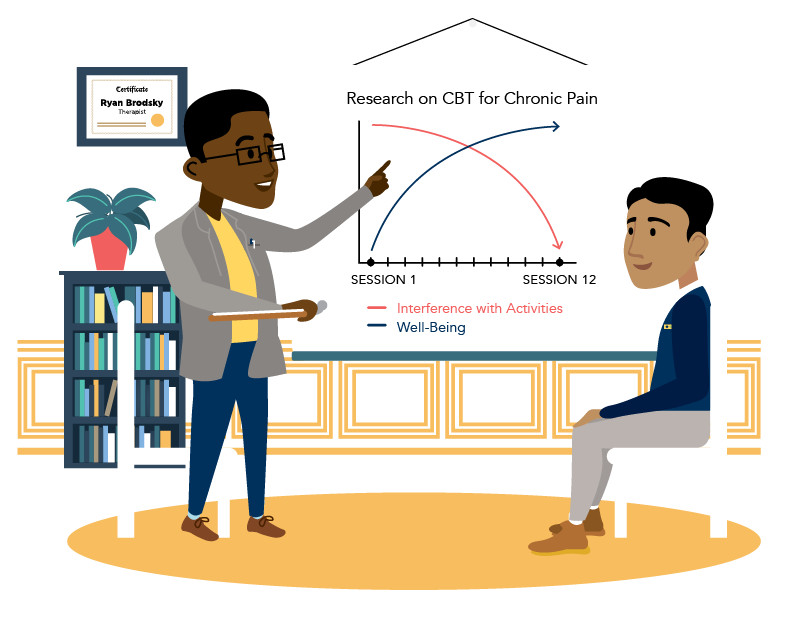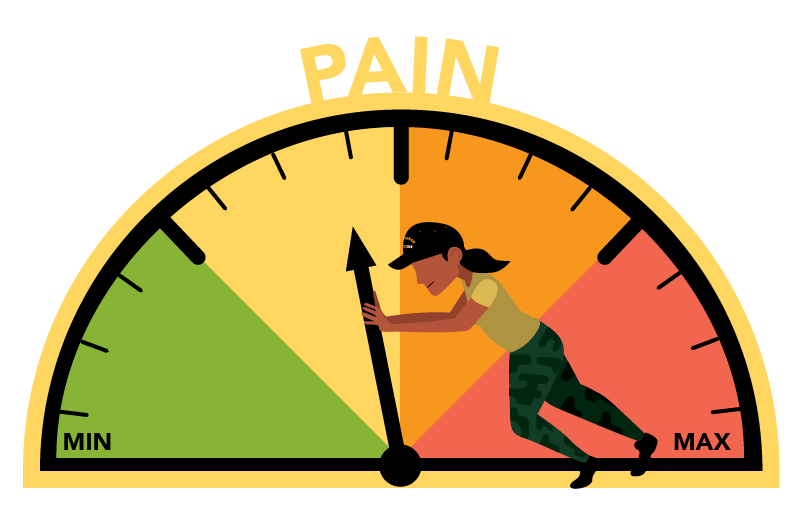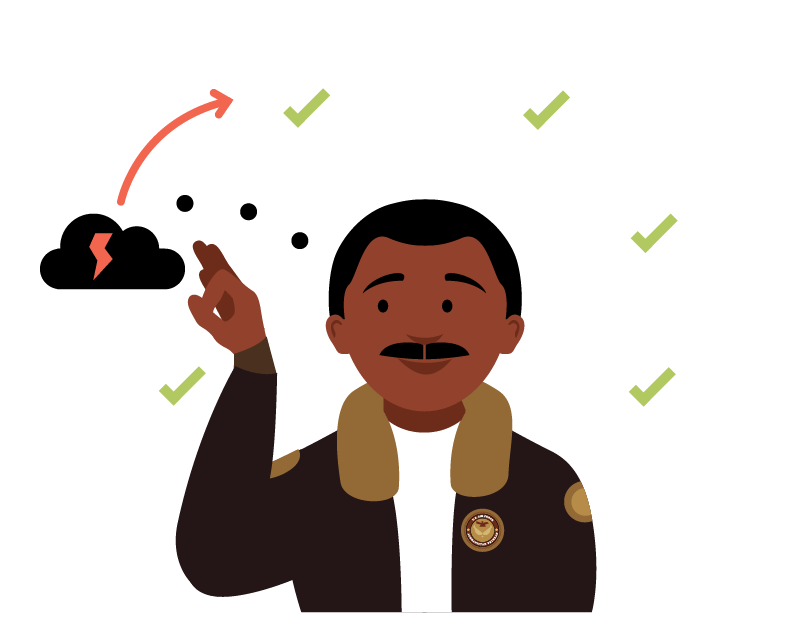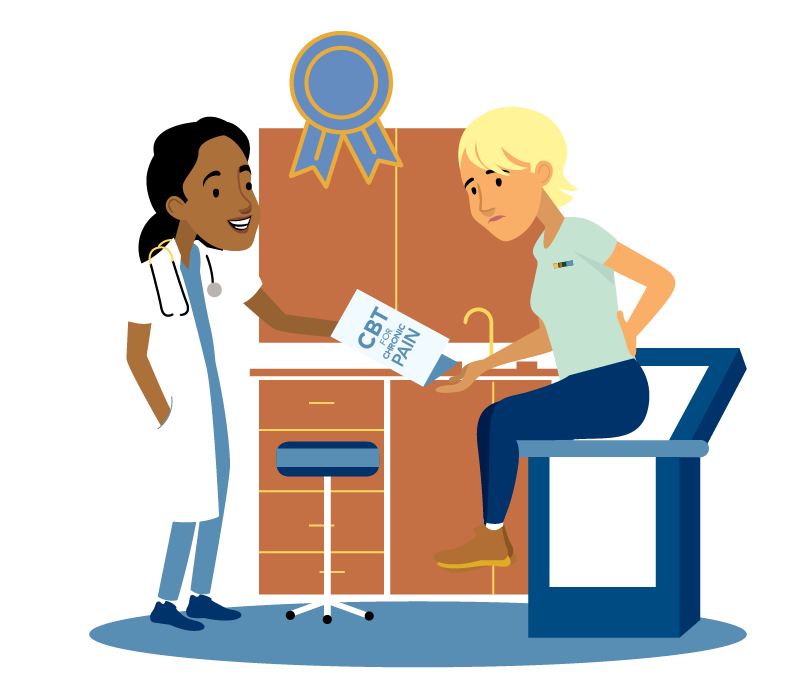MIRECC / CoE
Learn About Proven Treatments for Chronic Pain
Let's take a look at Cognitive Behavioral Therapy (or CBT) for Chronic Pain.
What is CBT for Chronic Pain?
Cognitive Behavioral Therapy for Chronic Pain (CBT-CP) is an evidence-based treatment option for chronic pain shown to be effective in helping people better manage and take control of chronic pain and its effects. CBT-CP teaches proven skills for changing thoughts, emotions, and behaviors that affect how people experience pain.
Watch this video to learn more about CBT-CP treatment. And explore the tabs at the bottom of this page to learn about the specific parts of treatment!
Many years of research have shown that CBT-CP is effective in improving how people experience…

and manage chronic pain.

Overall, Veterans who complete CBT-CP report fewer negative effects of pain on their daily lives…

and fewer unhelpful thoughts related to pain.

CBT-CP is recommended by experts…

as part of an overall treatment approach for chronic pain.

What happens in Treatment?
CBT-CP helps people with chronic pain change thoughts and behaviors that affect pain. By teaching proven skills, CBT-CP can help you take control of your pain, rather than it take control of you.
Click on an item on below to learn about the different steps of CBT-CP!
Get Moving Again
People with chronic pain often limit movement to avoid flare-ups and protect parts of the body. Limiting movement though actually weakens muscles and lowers one's confidence and mood. In CBT-CP, you will learn how to slowly introduce physical activities back into your life in a way that works for you. This can increase your muscle strength and energy level.
Increase Pleasant Activities
Coping with pain often leads people to avoid doing things they used to enjoy. This can bring on feelings of sadness, frustration, or guilt. These feelings may lead people to further withdraw and spend more time focusing on their pain. CBT-CP helps you find activities that provide pleasure or meaning and then put these back into your life.
Learn Relaxation Skills
An important part of treatment involves training in effective relaxation skills for lowering tension and stress that contribute to pain. These proven skills help manage your body's natural responses to pain and calm the nervous system.
Change Unhelpful Thoughts Related to Pain
You may often think about your pain or worry about what it means for you. This can bring on stress and difficult emotions, like sadness, frustration, or guilt. These difficult thoughts and emotions "turn up the volume" on chronic pain. During treatment, you will learn how to reframe your thoughts to improve how you feel and to take control of your pain.
Improve Sleep
Chronic pain often interferes with sleep. And sleep problems can increase pain sensitivity. CBT-CP can help you learn proven skills for improving sleep, including strategies for sleeping longer and better.
Next
Let's look a bit closer at what CBT for Chronic Pain looks like.
- Learn about Proven Treatments You are here
- View the Treatment Process Up Close You are here
- Explore Your Goals You are here
- Find Treatment You are here
Questions or problems? Contact Rocky Mountain MIRECC.
Site Map
Contact Information
Colorado
Rocky Mountain Regional VAMC (RMR VAMC)
1700 N Wheeling St, BLDG A2
Aurora, CO 80045
303-399-8020
RockyMountainMIRECC@va.gov
Utah
VA Salt Lake City Health Care System
500 Foothill DR
Salt Lake City, UT 84148
801-582-1565 ext 2835



















